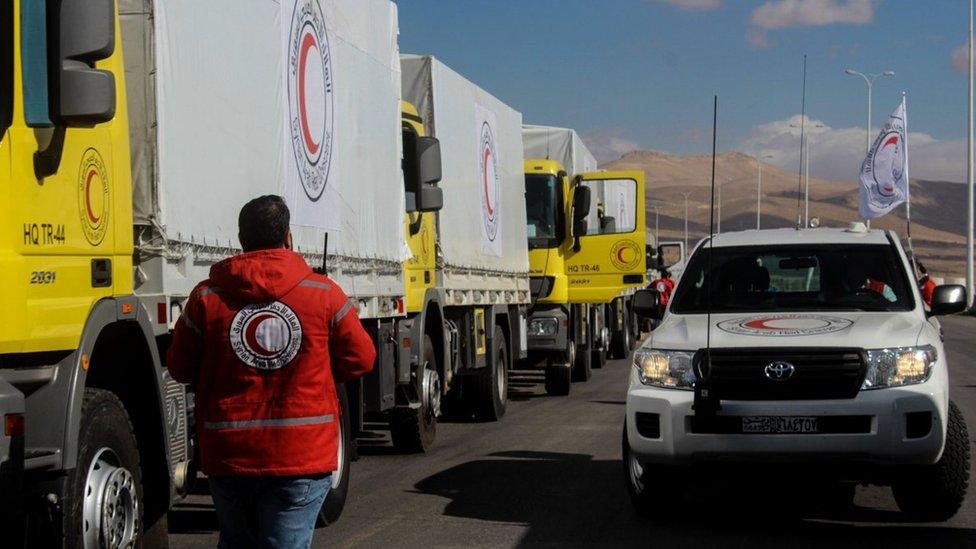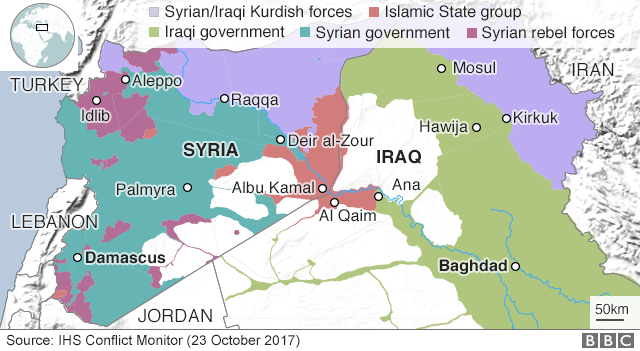Syria war: Aid reaches starving Eastern Ghouta civilians
- Published
Children living less than 30km from the Syrian capital Damascus are malnourished
Aid has reached starving civilians trapped in the Eastern Ghouta, a rebel-held area outside Damascus, for the first time in more than a year.
Supplies for 40,000 people were allowed into the towns of Kafr Batna and Saqba on Monday, according to the UN.
It comes days after the UN human rights chief said the plight of civilians living there was "an outrage" that might constitute a war crime.
Some 350,000 people have been besieged by pro-government forces since 2013.

The Red Crescent and UN hope to deliver more aid to Kafr Batna and Saqba in the coming days
The convoy of 49 lorries was carrying "8,000 food parcels and a similar number of bags of flour, medicine, medical supplies, and other nutritional materials", Mona Kurdi, a Syrian Arab Red Crescent (SARC) spokeswoman, told AFP news agency.
The aid would also be distributed to Hamouria and Ain Tarma, the SARC said.
A convoy carrying aid for 25,000 people reached parts of Eastern Ghouta on 23 September. But aid had not got through to Kafr Batna and Saqba since June 2016, Jens Laerke, a spokesman for UN Office for the Co-ordination of Humanitarian Affairs (OCHA), told Reuters news agency.
"More aid to complement today's delivery is planned in the coming days," he said.
On Friday, UN High Commissioner for Human Rights Zeid Raad Al Hussein said recent images of malnourished children were a "frightening indication of the plight of people in Eastern Ghouta, who are now facing a humanitarian emergency".
The UN children's agency, Unicef, said 232 children were suffering from severe acute malnutrition, with two infants reported to have died in the past month. One of them was 34-day-old Sahar Dofdaa, photographs of whom were published recently.
Another 882 children were suffering from moderate acute malnutrition, while more than 1,500 were at risk, the agency added.
Allow X content?
This article contains content provided by X. We ask for your permission before anything is loaded, as they may be using cookies and other technologies. You may want to read X’s cookie policy, external and privacy policy, external before accepting. To view this content choose ‘accept and continue’.
Once a fertile agricultural belt, the Eastern Ghouta is in the throes of a humanitarian crisis as government forces have recently tightened their siege of the region, closing tunnels that had been used by the opposition to smuggle in food.
Human rights groups have frequently accused the Syrian government of using starvation as a weapon of war - a charge it denies.
News of the convoy's arrival in the Eastern Ghouta came as the latest round of Russian-sponsored peace talks got under way in the Kazakh capital, Astana.
